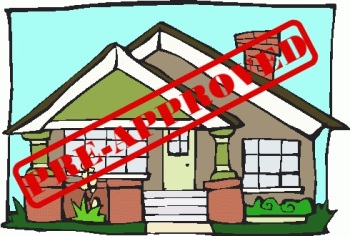Here are four things that can derail your mortgage financing even if you’ve been pre-approved by your bank or a mortgage broker. If you can avoid these types of issues, you’ll be more likely to receive a “final approval” green light from the mortgage lender.
1. You have insufficient documentation.
Mortgage lenders request a variety of financial documents when approving borrowers for mortgages. These include Notice of Assessments from Revenue Canada, tax returns, bank statements, pay stubs, employment letters and confirmation of your down payment funds but they may not request all of these documents up front. In some cases, the mortgage lender will issue a pre-approval or pre-qualification based on partial documentation or even no documentation. Later in the process, the mortgage underwriter might even request additional documents. In the best-case scenario, this will only lead to a slight delay in the mortgage approval process. In the worst-case scenario, it could cause you to be denied a mortgage due to insufficient documentation – even after you think you have been pre-approved for mortgage financing.
You can reduce the chance of document-related problems by rounding up your documents in advance. This is why as your mortgage broker I always try to anticipate the documents that a mortgage lender is going to request and work with you to gather them before you have found your dream home.
2. You don’t have enough funds for your closing costs.
These days, many mortgage lenders and all mortgage insurers are requiring borrowers to have additional “cash reserves” in the bank, prior to closing to cover the closing costs. Borrowers can be denied a mortgage after being pre-approved if you can provide documentation confirming you have these funds available.
As a borrower, you should be proactive and ask about these requirements up front. It could help prevent unpleasant surprises down the road.
3. You made a large purchase, or purchases and taken on additional debt since pre-approval.
Being pre-approved for a mortgage, or even approved if you are at that stage, doesn’t mean you can go out and make large purchases. Spending a lot of money on a car or vacation could reduce your chance of securing your financing to the point you could get denied a mortgage. The lender will review your credit report at the time you apply for the mortgage. The pre-approval is based on your current circumstances.
There’s a good chance they will check your credit again, after you have found a home and been approved for a mortgage. Most lenders verify credit again just before closing, to ensure the borrower’s financial situation has not changed significantly. So it’s important that you keep your financial situation as “static” as possible, between the pre-approval and the final closing!
Debt-to-income ratios are very important during the mortgage process. This ratio is basically a comparison between the amount of money you earn and the amount you spend to cover your monthly debts. Having too much debt can hurt your chances of getting mortgage financing.
This is another factor that can cause you to be denied a mortgage after preapproval. For instance, if you rack up a bunch of new credit card debt shortly after being pre-approved, it could put your debt-to-income ratio above the lender’s cut off point. If this happens, you may no longer qualify for a mortgage under the underwriting guidelines.
The good news is you have some degree of control over this. To prevent these types of problems after pre-approval, avoid making major purchases or opening new lines of credit. Keep those credit cards in your wallet until you receive a final approval and until after you have moved into your new home.
4. Your income or employment situation has changed.
The mortgage lender will pre-approve you based on your current income and employment situation. However, if your status changes sometime during the underwriting process, it could cause you to be denied the mortgage. You have less control over this factor than the ones listed above. You can control your purchases and credit card usage, for the most part. But your income situation might be beyond your control. Just do everything within your power to keep your income and employment situation static after you have found a home and moved in.
Here’s what you need to take away from this:
• A pre-approval can be a helpful step in the mortgage process. It allows you to narrow your search to homes that fit your budget and secure an interest rate. But it’s not a guarantee of financing.
• A pre-approval is not a mortgage commitment. It is the lender’s way of saying they will likely give you a mortgage for a certain amount, as long as your financial situation doesn’t change prior to closing and they like the property you are purchasing.
• Even having a pre-approval letter does not mean you are home free. Things can still go wrong before the final closing, causing the mortgage to be denied.
• Your goal as a borrower is to maintain the status quo as much as possible
My role as your mortgage broker is to reduce the possibility of any of the above happening to you during the mortgage process and endeavor to make the process go as smoothly as possible. A mortgage pre-approval is the first step to home ownership. If you would like to get pre-approved for a mortgage the right way, please give me a call at 250-826-3543
April Dunn is a Mortgage Broker who has been assisting clients to purchase, refinance or renew their mortgages for over 20 years. April is the owner and a Mortgage Broker with The Red Door Mortgage Group – Mortgage Architects and specializes in Strategic Mortgage Planning. April provides a full range of residential and commercial mortgage financing for clients all over the province of British Columbia and across Canada through the Mortgage Architects network. April can be reached at 250-826-3543 or april.dunn@mtgarc.ca

